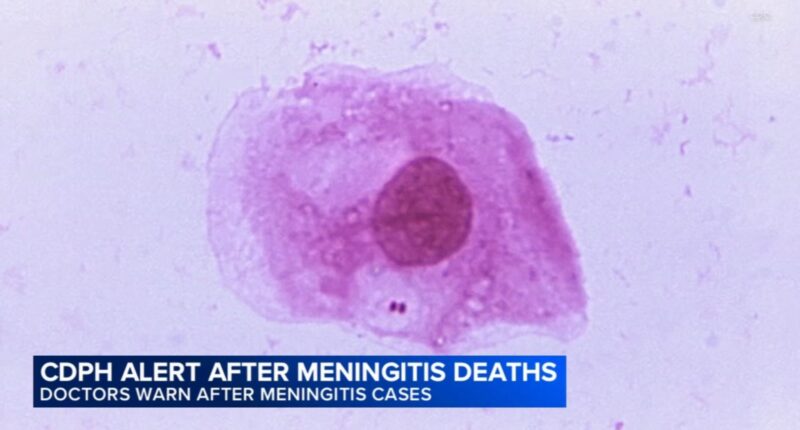Share this @internewscast.com
CHICAGO (WLS) — The Chicago Department of Public Health has raised an alarm following the recent deaths of two individuals from a form of meningitis. This announcement comes amid an unusual increase in cases of the illness, prompting heightened concern among health officials.
Health experts are worried about a potential surge in this deadly disease, which is transmitted through saliva. The illness is characterized by symptoms such as a purple rash, headache, confusion, stiff neck, and vomiting, making it a serious public health threat.
Once the bacteria, known as Neisseria meningitidis or meningococcus, enters the bloodstream, it can cause sepsis, often resulting in fatality. Despite available antibiotic treatments, the infection remains highly lethal, with a mortality rate of approximately 10 to 15 percent, according to Dr. Marielle Fricchione.
ABC7 Chicago is now streaming 24/7. Click here to watch
“It’s a very fast-moving infection, which is particularly alarming for emergency room doctors,” Dr. Fricchione added, reflecting the urgency with which the medical community is addressing this outbreak.
Once in the blood, the Neisseria meningitidis, also referred to as meningococcus, can lead to sepsis and often kills.
About 10 to 15% of people die even with antibiotic treatment,” Dr. Marielle Fricchione said. “It’s a very fast moving infection, which makes it really scary for emergency room doctors.”
Dr. Fricchione is a RUSH pediatric infectious disease physician.
“If you lose even a half hour, an hour of time, then that bacteria has a chance to spread throughout your blood and to your brain,” Dr. Fricchione said.
The Chicago Department of Public Health says since January 15, at least seven cases of Neisseria meningitidis in adults have been reported, resulting in two deaths. At least two of the cases were in people living in the same homeless shelter.
Chicago typically sees 10 to 15 such cases per year.
“To have this cluster with two deaths already is pretty concerning,” Dr. Fricchione said.
Though less contagious than flu or the cold, the bacteria can spread through saliva, often in congregate settings.
Dr. Fricchione is the chair of the IIllinois Immunization Advisory Committee and disagrees with the CDC’s recent changes to the childhood vaccine schedule, which no longer recommends broad meningococcal vaccination.
“This is the exact example you’re afraid of,” Dr. Fricchione said. “You get an outbreak in one community, and all of a sudden if you stop vaccinating your teenagers or your college students, that outbreak spreads.”
Doctors say in addition to that high mortality rate, the infection can lead to a loss of hearing and damage to extremities leading to amputation.
Copyright © 2026 WLS-TV. All Rights Reserved.
















